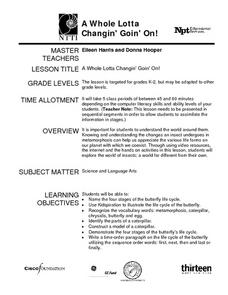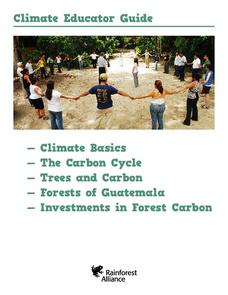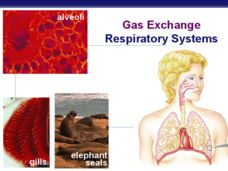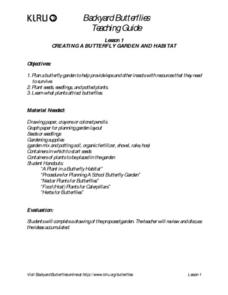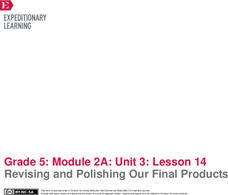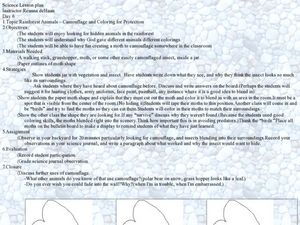Desert Discoveries
Sonoran Desert Predators and Prey
Here is a fabulous lesson the animals found in the Sonoran Desert. Learners classify these animals as predators, prey, or both! They take a look at the many adaptations that these animals utilize to help them find food, and avoid...
Curated OER
Harvesting Mosaics
Students use pieces of farm pictures to investigate the elements of art. In this farm art instructional activity, students use pieces of pictures to create an original artwork. Students use the Internet to find images. Students create...
Forest Foundation
Forest Health
Young foresters examine the strategies, like prescribed burns and thinning, that are employed to ensure healthy forests.
Forest Foundation
The Web of Life
Producers, herbivores, carnivores, omnivores, decomposers. To begin a study of the forest ecosystem, learners examine the connections among the members of ecological communities.
Curated OER
A Whole Lotta Changin' Goin' On
Here's a fabulous activity on the life cycle of a butterfly. Youngsters are able to identify and understand the four stages of life. They construct models of a caterpillar and write a sequence story about the life of a butterfly. This...
Curated OER
Solid Waste Recycling
Students seek scientific and technological solutions to envrionmental problems. They record class activities in a journal. They identify relationships among living things and their environments.
Curated OER
Animal Alphabet
Review the alphabet and the sounds each letter makes before having learners identify animals whose names begin with each letter. Working in groups of four to six, they make an animal alphabet book with the letter, a picture of the animal...
Curated OER
Giant Smelly Plant Attracts Thousands
Read and discuss a news article about a rare corpse plant that bloomed in Washington D.C. Because this native Indonesian plant blooms so rarely, people flock to see it. After reading the article, your class answers comprehension...
Curated OER
Exploration of 'pill bugs'
Fifth graders define words. They create a dichotomous key. After carefully examining pill bugs, 5th graders record observations. They compare and contrast habitats of pillbugs.
Curated OER
Organic and Inorganic Waste
Students conduct a scientific investigation about organic or inorganic waste. For this organic or inorganic waste lesson, students create a compost heap to determine the difference between inorganic and organic waste. Students record...
Rainforest Alliance
Climate Educator Guide
Climate change is a hot topic in the news. Class members examine carbon dioxide data to analyze trends of our atmospheric makeup over time. They also discuss climate and climate change, and determine how these changes are affecting life...
Curated OER
Taking Count of Biodiversity
Here is a well-designed lesson plan on biodiversity that should intrigue your charges. In it, pupils compare a natural desert area to a school field to see how habitat destruction affects species diversity. Groups set up transects and...
Curated OER
ACTIVITY 6: MAKE A FOSSIL MOLD AND CAST and ACTIVITY 7: HOW BIG WERE PREHISTORIC ANIMALS?
Instructions for two terrific ancient history lessons for your primary paleontologists are provided in this resource. The first involves the creation of fossil cast replicas using plaster of Paris. The directions are detailed, but the...
SeaWorld
Animal Migrations
Here is a fabulous set of activities for your young scientists. Each instructional activity contains map, hands-on, and game activities that will help the class understand why and how animals migrate from one place to another. First...
Curated OER
Gas exchange: Respiratory Systems
The need for a respiratory system in humans versus being reliant on gas exchange structures is demonstrated. There are many details about the advantages and disadvantages of each mechanism. Students are able to learn about the...
Curated OER
Gas Exchange And Respiratory Systems.
Explore structures within the realm of gas exchange in terrestrial and aquatic life. The excellent, labelled diagrams and clear descriptions help your students view the different structures and adaptations that have developed. The 29...
Curated OER
Jeopardy Game - Animals
Here is a fantastic Jeopardy-style game for elementary schoolers that's all about animals. This is one of the more thorough of this type of presentation.The 53 slides cover all sorts of topics about a variety of animals. There is an...
PBS
Creating a Butterfly Garden and Habitat
This complete set of instructions for creating your very own butterfly garden and habitat is so cool! With some seeds and the handy resources in this activity, you and your class will be able to determine which type of habitat is best...
Captain Planet Foundation
Energy Flow in the Garden
How can you tell what an owl has eaten? Study the food chain and flow of energy in an ecosystem by dissecting an owl pellet and noting the bones found inside. Additionally, the lesson includes a game about consumers and producers with a...
EngageNY
Revision and Illustration: Strengthening the Writing in my Rainforest Field Journal and Adding a Labeled Drawing
Let me draw you a picture. Scholars read a quote from Roger Tory Peterson and discuss his views on drawings. They then create their own drawings of an ant or butterfly to add to their science journals.
EngageNY
Revising and Polishing Our Final Products
One, two, three go! Scholars work independently to finalize the three components of their final task. They complete a science journal entry, scientific text box, and scientific drawing. While working, learners sign up for an appointment...
Curated OER
Invertebrates
Students identify insect body parts and look for local insect life. They create an insect using recycled material and design a classroom mural with bug facts. They study Monarch butterflies and dragonflies.
Curated OER
Termite Biology
Students explore the physical characteristics, distribution and habitat of termites. The lesson focuses on the termite as a social creature contrary to most other insects.
Curated OER
Rainforest Animals – Camouflage and Coloring for Protection
Students explain why animals need to blend in with their surrounding. In this environmental science instructional activity, students create moth paper models to simulate animals hidden in the rainforests. They make a bulletin board...
Other popular searches
- Insects Science
- K 2 Life Science Insects
- Parts of Insects Science
- Life Science Insects
- Esl Lessons Science Insects
- Esl Science Insects






